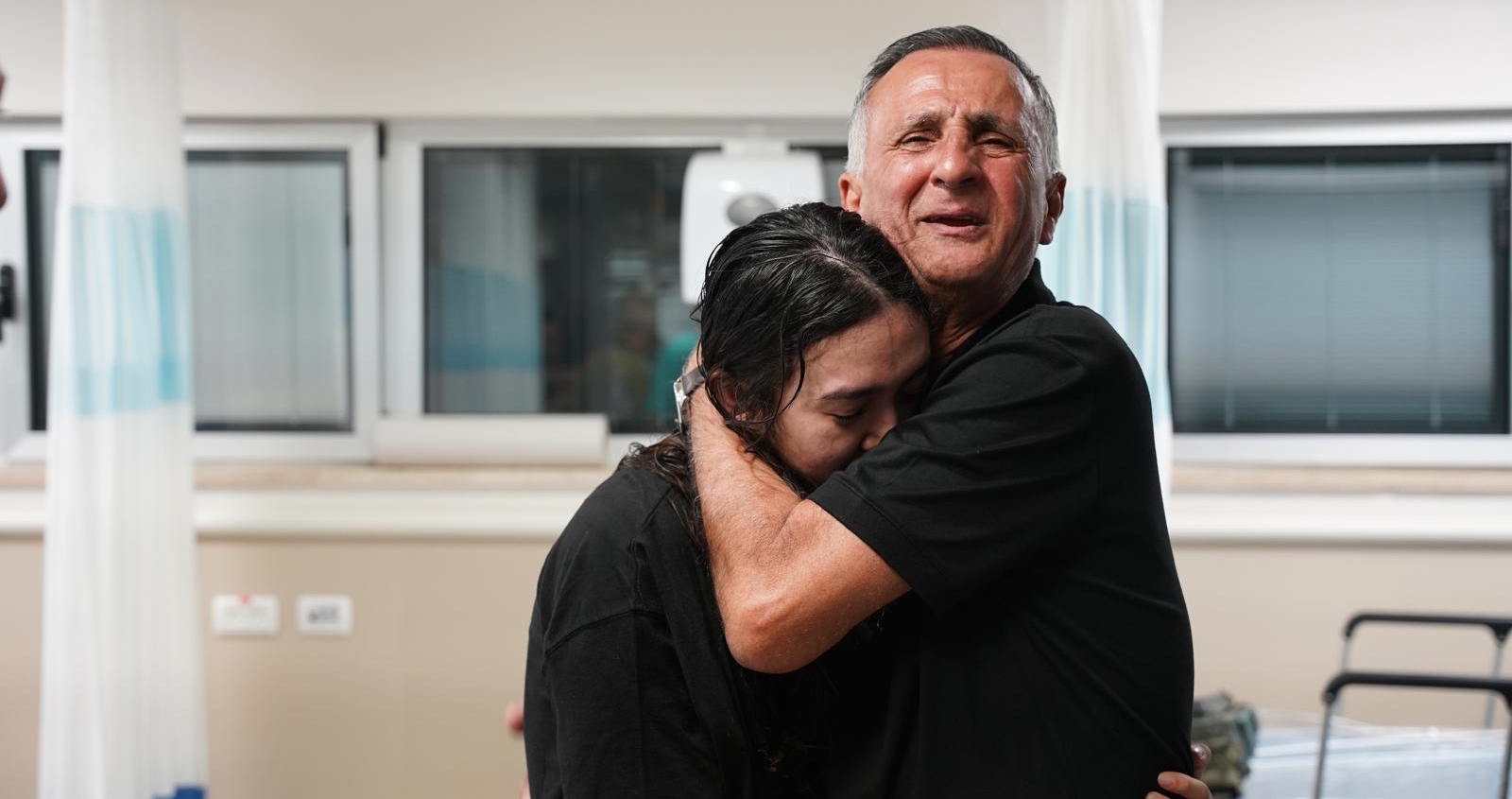The hostage rescue is a joyous distraction. A deal is still key
To save the rest of the hostages, push Hamas and Israel to negotiate

Noa Argamani embraces her father, Yaakov, after her rescue from captivity. Photo by Israeli Army Spokesman
I share every bit of the joy and relief all Israel felt at the news of the IDF’s daring rescue of four hostages after eight months in Hamas captivity. How could anyone not rejoice at the emotional reunion of Noa Argamani with her father?
But the astonishing mission reaffirms, rather than negates, a fundamental truth: A negotiated deal is still the best way to release all the hostages, end the bloodshed on both sides, and achieve greater security for Israelis and Palestinians.
Consider the statistics. Since Oct. 7, Israel has managed to rescue seven hostages. It has killed three in friendly fire. 120 remain in captivity, at least 30 of whom are believed to have died.
Tens of thousands of Palestinian civilians have been killed, along with almost 300 Israeli soldiers and security personnel, including one police officer, Arnon Zamora, who was mortally wounded in the rescue operation.
As tempting as it is to compare Saturday’s successful operation to the 1976 raid on Entebbe, which freed 106 hostages, the key difference is that, back then, no one was left behind.
This time, Israel had to leave far more than 106 behind, and Hamas has vowed to take extreme measures to prevent the liberation of more.
If Israel’s priority is to kill the rest of the Hamas fighters, then by all means, continue the fight — even though doing so will ensure more Palestinian civilian casualties, more international isolation, and, judging by the success rate so far, the survival of few of the remaining hostages.
But if the goal is to bring the rest of the hostages home alive and find an exit from Gaza that leaves Israel more secure, then it’s time that those who care about Palestinians and Israelis pushed Israel and Hamas to commit to a plan to return the hostages and end the war.
That may be an unpopular opinion, but it’s one at least some of the families of the rescued hostages hold as well.
“Let’s not forget, there are still 120 hostages, and we have to free them,” Yaakov Argamani, Noa’s father, said after his daughter’s rescue. “We have to make every effort, in any way we can, to bring them to Israel and their families.”
The ceasefire deal President Joe Biden proposed last week has a far greater chance of freeing those hostages that remain than a continuation of the war. As Michael Koplow, chief analyst for the Israel Policy Forum, pointed out, the IDF has killed enough terrorists, blown up enough tunnels, secured enough intelligence and captured enough weapons to afford Israel some breathing room.
“The notion that Israel has reestablished a level of deterrence based on this campaign that will be lost if there is a six week pause seems fanciful,” he wrote.
That leaves a deal as Israel’s last best hope. The fact that mainstream American Jewish groups are not joining with the majority of Israelis and actively and loudly pushing for a deal is shameful.
The fact that so-called progressives and pro-Palestinian groups aren’t demanding Hamas compromise on a deal is also shameful. People who are justifiably anguished by the innocent Palestinian women and children killed during the raid need to raise their voices to convince Hamas, which has yet to accept the deal, to say yes.
“Far better to stop fighting now and seriously discuss what should happen next,” concluded a thoughtful analysis of the deal from the International Crisis Group, “than to put off what is an inevitable reckoning yet again while, in the meantime, thousands more Palestinian civilians are killed, starved, displaced and further immiserated, and hope of getting the hostages out alive fades.”
Amid the celebration of what is a much-needed, but temporary victory, both sides should pay attention to what Yaakov Argamani said just days after his daughter was captured, eight long months ago.
“I hope we can come together, so that together we can think about what is best for us and also for them. They are suffering, too; they are being battered, too,” Argamani told the news site Middle East Eye. “We have to stop this killing between us and them, so that there can be real peace between these two countries once and for all.”
Correction: The original version of this article mistakenly identified Arnon Zamora, who was killed in the raid that rescued four Israeli hostages in Gaza, as a solider in the Israel Defense Forces. He was a chief inspector in the Yamam counter-terrorism unit of the Israel Police.















